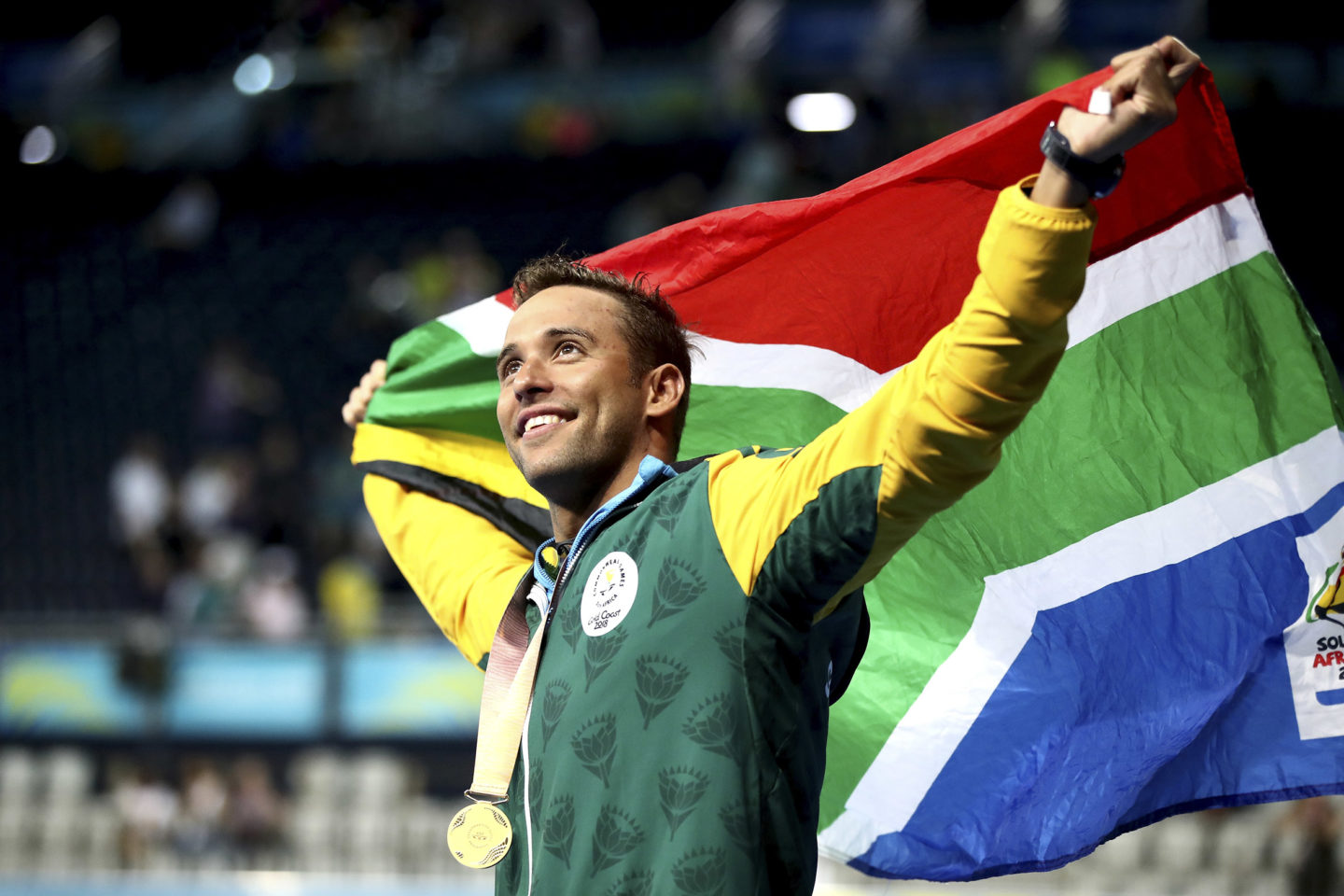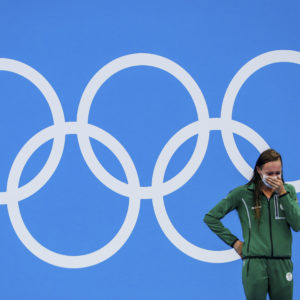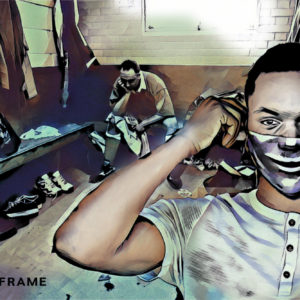Chad le Clos’ deep waters of depression
The South African swimmer went through a dip in performance last year after a traumatic experience left him struggling mentally. But after therapy, he’s in winning form again.
Author:
30 April 2022

He’ll never reveal what happened but Chad le Clos went through an experience so harrowing early last year that it left him in an extremely dark place. It was a place not even the joy of swimming – and winning – could reach and he eventually had to seek help to get back on his feet and back in the pool.
It’s been a tough few years in general for the 30-year-old swimmer who, by the age of 21, had risen to the pinnacle of his sport. He’d earned Olympic gold by beating the greatest of all time, Michael Phelps. A few days later, he’d added a silver medal to his haul at London 2012. He was on top of the sporting world and with his charming smile and endearing manner, Le Clos was being hailed as South Africa’s golden boy.
He loved it. The type of swimmer who thrives in the limelight, the adulation spurred him on to two more Olympic silvers four years later, four world titles in the long-course pool (50m) and 10 in the short course (25m).
Related article:
But with the mental stress he was under last year, that bubble burst. Le Clos walked away from the Olympic Games in Tokyo empty-handed. He finished fifth in the 200m butterfly final and didn’t even make it out of the heats in the 100m butterfly. In his place it was Tatjana Schoenmaker who was hailed as the Olympic hero having claimed gold and silver in the 200m and 100m breaststroke respectively.
“It was rough. It wasn’t necessarily about them talking about Tatjana because I was happy for her. It was more myself. Deep down we knew we couldn’t win. The preparation, mental stresses that I had… People thought I was playing games or bluffing,” says Le Clos.
“I couldn’t believe I didn’t make the final. I was devastated, I was almost in tears after that race. I just felt like I let everyone down because we had worked so hard for that.”
A shell of his former self
His close-knit family are devoted to him, he says, and would never feel let down. But several of Le Clos’ sponsors – vital in a sport with no government or federation funding – reduced their support after the Games. It wasn’t the money that concerned him, however. “It’s tough because you lose everything, you lose your way.”
“Tatjana became a superstar – and rightfully so – I’m not upset about that at all, and Matthew [Sates] won the World Cup and I’m over the moon for them. It’s not about them at all, it’s about me and who I am as a person and not having that and being so low after that.”
Ahead of the Olympics, Le Clos thought he could power through the mental turmoil of what had happened in January. “It’s something I’ll never talk about because it’s not for anybody else to know. But it was something so deep, it was worse than my parents having cancer and this was worse for them.
“It really cut me deep but I didn’t know it affected me. Sometimes you don’t know that you’re swimming with that weight on your shoulders. I wasn’t myself. I was so unsure about myself. I lost all my confidence last year.”
Le Clos’ father Bert encouraged him to talk to a sports psychologist after it happened but he refused. “I’ve always prided myself in being a head-strong guy, I’m the man, but I needed someone last year.

“There are only about five people in the world that know, but it was really deep. I didn’t want to talk about it because I thought it would affect me – it was too close to the Olympics. I thought I’m just going to power through this and I’ll be ok. You’re training well and then you get to a meet and all those wobbles get to you.”
It was only after the Olympics that Le Clos sought the help he needed. He went through intense eye movement desensitisation and reprocessing therapy to work through his traumatic experience. “I only started to speak to someone after the Olympics – biggest mistake of my life – and I started getting myself right again. I was in a dark place, even after the Olympics. I was super depressed.
“There were times where I was sitting in my room just crying by myself. I didn’t know why I was like that. It genuinely wasn’t about the Olympics. It was about my future and about me… it felt like I had fallen such a long way from where I was in terms of who I was as a person. It really wasn’t about swimming.
“I did some deep therapy last year. I’m okay to talk about it now because I’m actually good. I’m 100% good now compared to last year. Last year I couldn’t talk about anything because I was just a shell of myself.”
On the up
Le Clos is now well on the road to recovery and it’s showing in the pool. At the recent SA Swimming Championships in Gqeberha, he swam World Championship and Commonwealth Games qualifying times in the 100m and 200m butterfly, and claimed the national title in the 50m butterfly.
“The main thing is that I’m good, everyone is good, I’m on my way back. I’m doing the right things… I still believe I’ve got a lot of fight left in me. I’ve had a great career, but I don’t think I’m done by any means.”
His main goal now is to become the most decorated athlete in Commonwealth Games history. To surpass the current record holder, Australian shooter Phillip Adams, who has 18 medals, Le Clos needs to win two more.
Related article:
“That’s a big goal of mine. I’m focusing very heavily on that. We’ve got the world champs before which will obviously be very important, but the Commonwealths is definitely my main focus for this year,” he said. “Hopefully we can get a couple of relays through and pick up a few medals there but I’m hoping to smash that record come July.”
There are also the Olympic Games in Paris in 2024. Back to his confident self, the swimmer is quick to claim, “I know I’m winning medals in two years’ time, I can promise you that. So I’m not worried about the future.”


